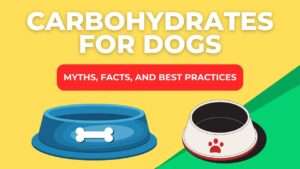Coconuts, with their tropical allure and versatile uses, have piqued the curiosity of many dog owners. But can our furry friends partake in this exotic fruit’s delights? Let’s unravel the mystery of whether dogs can safely indulge in coconut, exploring its benefits, risks, and best practices for feeding.
Contents Overview
Understanding Coconut
Coconut is the fruit of the coconut palm (Cocos nucifera), native to tropical regions. It is prized for its sweet, nutty flavor and is used in various forms, including fresh coconut meat, coconut water, coconut oil, and shredded coconut. Coconut contains medium-chain fatty acids (MCFAs), vitamins, minerals, and antioxidants, making it a nutritious addition to human diets.
But before serving them to your dog, it’s crucial to discern between various coconut products:
- Coconut Flesh: The white, fleshy part of the coconut is rich in healthy fats and can be consumed fresh, dried, or as coconut milk.
- Coconut Water: The refreshing liquid found inside coconuts is low in calories and rich in electrolytes, making it a hydrating treat.
- Coconut Oil: Extracted from coconut flesh, this oil is lauded for its antimicrobial properties and potential health benefits.
Can Dogs Eat Coconut Flesh?
Yes, dogs can enjoy small amounts of fresh or dried coconut flesh. Its nutritional value offers potential benefits like:
- Healthy Fats: Coconut flesh contains medium-chain triglycerides (MCTs), which may promote skin health and boost energy levels in dogs.
- Fiber: Adequate fiber intake supports digestive health and can help regulate bowel movements in dogs.
- Energy Source: Coconut provides a source of energy for dogs due to its medium-chain triglycerides (MCTs), which are readily absorbed and metabolized by the body. It can be particularly beneficial for active dogs or those needing an extra energy boost.
However, moderation is key. Too much coconut flesh can lead to gastrointestinal upset or weight gain due to its high-fat content.
Is Coconut Water Safe for Dogs?
Coconut water is generally safe for dogs in small amounts. Its electrolyte content can be beneficial for rehydration, especially after vigorous exercise or in hot weather. However, avoid flavored or sweetened varieties, as they may contain additives harmful to dogs.
What About Coconut Oil?
Coconut oil has gained popularity in pet care for its purported health benefits, including:
- Improving Coat Health: The MCTs in coconut oil may contribute to a shiny, healthy coat and help alleviate dry skin.
- Supporting Oral Health: Some evidence suggests that coconut oil’s antimicrobial properties could help combat bacteria in a dog’s mouth, potentially reducing bad breath and plaque formation.
However, coconut oil is high in calories and saturated fats, so it should be used sparingly to prevent weight gain and digestive issues. Always start with small amounts and monitor your dog’s response.
How to Safely Feed Coconut to Your Dog
When feeding coconut to your dog, it’s essential to do so in moderation and with caution. Here are some tips for safely incorporating coconut into your dog’s diet:
- Fresh Coconut Meat: Offer small amounts of fresh coconut meat as a tasty and nutritious snack. Remove the outer husk and shell before feeding.
- Coconut Water: You can give your dog small amounts of unsweetened coconut water as a refreshing and hydrating treat. Avoid flavored or sweetened coconut water, as it may contain added sugars or artificial additives.
- Coconut Oil: Coconut oil can be added to your dog’s food as a dietary supplement or used topically to moisturize their skin. Start with a small amount and gradually increase the dosage as tolerated.
- Coconut Milk and Shredded Coconut: While coconut milk and shredded coconut are safe for dogs in small amounts, they are higher in fat and calories and may cause digestive upset if consumed in large quantities. Use them sparingly as an occasional treat.
Precautions and Considerations
While coconut can offer nutritional perks for dogs, there are important considerations to keep in mind:
- Allergies: Like any food, dogs can be allergic to coconut. Introduce it gradually and watch for signs of adverse reactions such as itching, vomiting, or diarrhea.
- Portion Control: Limit coconut intake to small, occasional treats to avoid overfeeding and potential health issues.
- High Fat Content: Coconut is high in fat and calories, so it should be fed in moderation, especially to overweight or obese dogs. Too much coconut may lead to weight gain or pancreatitis in susceptible dogs.
- Coconut Products: Opt for unsweetened, unflavored coconut products to prevent unnecessary additives or sugar intake.
- Consultation: If you’re uncertain about feeding coconut to your dog, consult with your veterinarian for personalized advice based on your pet’s health status and dietary needs.
Bottom Line
In the realm of canine nutrition, coconut can serve as a tasty and potentially beneficial addition to your dog’s diet. From its hydrating water to its nourishing flesh and versatile oil, coconut offers various ways to pamper your pooch. Just remember to exercise moderation, prioritize quality, and consult with your vet to ensure coconut fits seamlessly into your furry friend’s lifestyle. So go ahead, let your dog savor a taste of the tropics, but always with caution and care.




































+ There are no comments
Add yours